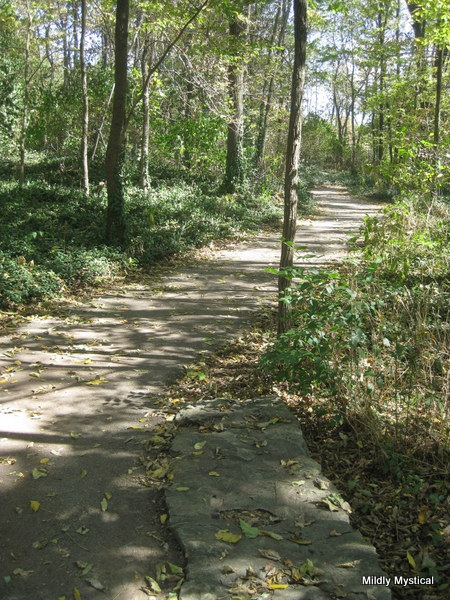To step away from daily obligations and wander without a particular purpose is hard to justify. We don’t often grant ourselves permission to be aimless wanderers, and the world doesn’t much encourage it, either. The very meaning of those two things—permission and wandering—pull against each other.
One is about boundaries, authority, accountability, productivity. The other resists those means of imposing order and goes exploring, looking to find what’s out there, experiencing unfamiliar situations, sometimes discovering new aspects of the world and of ourselves. Wandering seems irrelevant to the work at hand, the life to maintain, the deadlines to meet, the goals to reach, the responsibilities to live up to, the expectations to fulfill. Wandering doesn’t get any of those things done, at least not in any predictable way.
And yet. To step outside the boundaries of what is required is to enlarge the world. To go where there is no reason to go can mean finding a connection that changes everything. The seeker and the artist have much in common. They fulfill their role by resisting the constant pull of their communities, by not being entirely caught up in day-to-day life, by cultivating the perspective that allows them to offer something of unique value.
But what does it take to slip away, beyond the fence, for no good reason we can name? Is it strength? The strong rarely say so. It’s only recognized as strength when we return with something worthwhile. Is it a sense of calling? Only one that is recognized after the journey has served someone else. Is it laziness? It might look that way when tasks are left undone, though the effort to roam those distant hills requires dedication and perseverance. Is it rejection of the people in our lives? It sometimes looks like that when we require time spent separate from those we care about. Is it selfishness? It looks like that, too, though we spend ourselves on pursuits that have chosen us and not vice-versa, endeavors that may never serve how the world sees us at all. We wander, searching, hoping our work serves something higher than ourselves, and rarely being sure.
In India there are roaming sannyasis, pilgrims who have left home and family to travel to holy sites or live as spiritual seekers in the forest. They are familiar, they are tolerated, by some they are understood and affirmed, or even envied by those who wait their turn for the freedom to make the same renouncements. What do the sannyasis look like in our culture? Do we recognize them? How can we learn from their search, and benefit from their wisdom? Can we learn to be just a little bit like them?


First of all, the photo is beautiful! And what an interesting subject, especially in today’s world where even the time of children is taken up with schedules and far too much structure. When do we allow ourselves to simply wander, to follow some inner urge without knowing where we are being led.
In John O’Donohue’s ETERNAL ECHOES, he writes: “The soul is full of wanderlust.” And: “The soul and spirit are wanderers; their place of origin and destination remain unknown; they are dedicated to the discovery of what is unknown and strange.” And: “The wanderer is one who gives priority to the duties of longing over belonging.”
He includes, as well, a passage from the Bible: “The wind blows wherever it pleases; You hear its sound, But you cannot tell where it comes from or where it is going. This is how it is with all who are born of the Spirit.” John 3: 8-9
Thanks for this intriguing post.
I appreciate these wonderful quotes, Sharon. I loved John O’Donohue’s ANAM CARA, and I’ll have to put ETERNAL ECHOES on my reading list as well. “The duties of longing” is an interesting phrase, there’s tension in the juxtaposition of the two ideas of duty and longing, and it helps to consider longing in a new way. And to read the biblical passage from John in this context is to bring another rich level of understanding to it. Thank you for that, too.
You make a good point that all of us, including children–perhaps especially children, need space in our schedules, in our lives. Allowing ourselves to be led, to respond to the yearnings within, all of this is part of being fully alive. It’s good to be reminded of that.